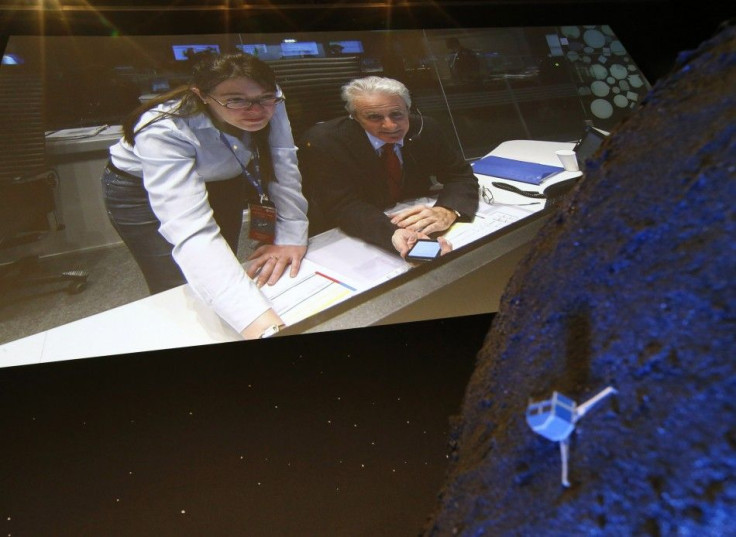Philae Probe Creates History By Soft Landing On Comet 67P Surface

The European Space Agency scientists have confirmed on Wednesday that the Philae probe landed on the surface of a comet. It created history as this was the first occasion when a soft landing was successfully performed on a comet.
The Rosetta mission is led by the ESA which is partnered with a consortium including NASA. The purpose of the mission is to obtain more knowledge about how comets interact with the high energy particles blasted by the Sun into space that are known as the solar wind. Scientists also want to learn the composition of comets as a part of the mission, CNN reported. The Philae lander started its 7-hour descent after getting separated from Rosetta, its mother ship, at around 3:30 a.m. ET. Philae has been fixed to Rosetta for 10 years while moving across the solar system. Philae could not be controlled after its release as it would be on its own.
Rosetta mission manager Fred Jansen said that the main orbiter might stay with the comet until the end of 2016, The Guardian reported. He said that ESA was considering the option to "park" Rosetta on the comet by the end of the mission. It may also reunite with the Philae by that time. In the meantime, the spacecraft is going to be so far away from the sun that it won't be able to generate enough power to keep itself going.
ESA lander system engineer Laurence O'Rourke said before the spacecraft had been separated that the orbiter must be in the correct position so that the spacecraft was allowed a "free fall" through the exact trajectory of the selected landing site. The Philae weighs 220 pounds, which means that it weighs like a domestic washing machine. However, the Philae is much smaller in size than a washing machine. It is going to test the surface of Comet 67P and photograph it. It will try to find out how it if affected by the dust and gas of blasted off by the Sun. Engineers had to come up with unique solutions to deal with the gravity issue with the comet. The weak gravity of Comet 67P would not have allowed the Philae to stay in place otherwise.
Contact the writer: s.mukhopadhyay@ibtimes.com.au





















